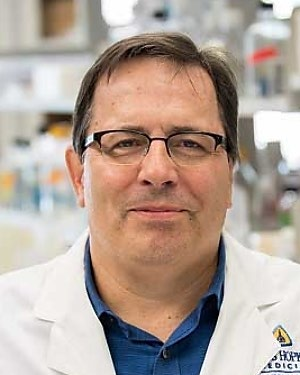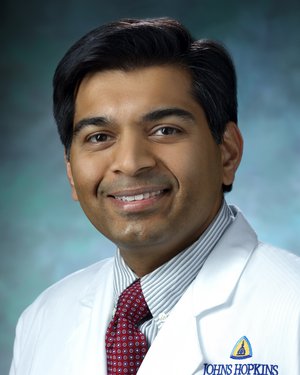Research Lab Results
-
Hey-Kyoung Lee Lab
The Hey-Kyoung Lee Lab is interested in exploring the cellular and molecular changes that happen at synapses to allow memory storage. We use various techniques, including electrophysiological recording, biochemical and molecular analysis, and imaging, to understand the cellular and molecular changes that happen during synaptic plasticity. Currently, we are examining the molecular and cellular mechanisms of global homeostatic synaptic plasticity using sensory cortices as model systems. In particular, we found that loss of vision elicits global changes in excitatory synaptic transmission in the primary visual cortex. Vision loss also triggers specific synaptic changes in other primary sensory cortices, which we postulate underlies sensory compensation in the blind. One of our main research goals is to understand the mechanisms underlying such cross-modal synaptic plasticity. We are also interested in elucidating the events that occur in diseased brains. In collaboration with other researchers, we are analyzing various mouse models of Alzheimer's disease, especially focusing on the possible alterations in synaptic plasticity mechanisms.
-
Marie-France Penet Lab
The Penet lab is within the Division of Cancer Imaging Research in the Department of Radiology and Radiological Science. The lab research focuses on using multimodal imaging techniques to better understand the microenvironment and improve cancer early detection, especially in ovarian cancer. By combining MRI, MRS and optical imaging, we are studying the tumor microenvironment to understand the role of hypoxia, tumor vascularization, macromolecular transport and tumor metabolism in tumor progression, metastasis and ascites formation in orthotopic models of cancer. We also are studying the role of tumor-associated macrophages in tumor progression. -
Mary Beth Brady Lab
Research in the Mary Beth Brady Lab focuses primarily on topics within the fields of anesthesiology, imaging and cardiology. Our work has explored transesophageal echocardiography simulation, echocardiography, cardiac and vascular-thoracic anesthesiology, and other areas within critical care medicine. A recent study involved obtaining 3-D images of the heart, which were then used to build computer programs to help cardiac surgeons improve their treatment of heart defects. -
The Pathak Lab
The Pathak lab is within the Division of Cancer Imaging Research in the Department of Radiology and Radiological Science. We develop novel imaging methods, computational models and visualization tools to ‘make visible’ critical aspects of cancer, stroke and neurobiology. Our research broadly encompasses the following areas: Functional and Molecular Imaging; Clinical Biomarker Development; Image-based Systems Biology and Visualization and Computational Tools. We are dedicated to mentoring the next generation of imagers, biomedical engineers and visualizers. Additional information can be found at www.pathaklab.org or by emailing Dr. Pathak. -
Shanthini Sockanathan Laboratory
The Shanthini Sockanathan Laboratory uses the developing spinal cord as our major paradigm to define the mechanisms that maintain an undifferentiated progenitor state and the molecular pathways that trigger their differentiation into neurons and glia. The major focus of the lab is the study of a new family of six-transmembrane proteins (6-TM GDEs) that play key roles in regulating neuronal and glial differentiation in the spinal cord. We recently discovered that the 6-TM GDEs release GPI-anchored proteins from the cell surface through cleavage of the GPI-anchor. This discovery identifies 6-TM GDEs as the first vertebrate membrane bound GPI-cleaving enzymes that work at the cell surface to regulate GPI-anchored protein function. Current work in the lab involves defining how the 6-TM GDEs regulate cellular signaling events that control neuronal and glial differentiation and function, with a major focus on how GDE dysfunction relates to the onset and progression of disease. To solve these questions, we use an integrated approach that includes in vivo models, imaging, molecular biology, biochemistry, developmental biology, genetics and behavior. -
Sujatha Kannan Lab
The Sujatha Kannan Lab works to develop therapeutic strategies for preventing perinatal brain injuries from occurring during development. We use a unique combination of nanotechnology, animal model development and in vivo imaging to better understand the mechanism and progression of cellular and metabolic conditions that lead to perinatal brain injury, with a focus on autism and cerebral palsy. -
Samuel R. Denmeade Laboratory
The main research goals of my laboratory are: (1) to identify and study the biology of novel cancer selective targets whose enzymatic function can be exploited for therapeutic and diagnostic purposes; (2) to develop methods to target novel agents for activiation by these cancer selective targets while avoiding or minimizing systemic toxicity; (3) to develop novel agents for imaging cancer sites at earliest stages. To accomplish these objectives the lab has originally focused on the development of prodrugs or protoxins that are inactive when given systemically via the blood and only become activated by tumor or tissue specific proteases present within sites of tumor. Using this approach, we are developing therapies targeted for activation by the serine proteases prostate-specific antigen (PSA), human glandular kallikrein 2 (hK2) and fibroblast activation protein (FAP) as well as the membrane carboxypeptidase prostate-specific membrane antigen (PSMA). One such approach developed in the lab consists of a potent bacterial protoxin that we have reengineered to be selectively activated by PSA within the Prostate. This PSA-activated toxin is currently being tested clinically as treatment for men with recurrent prostate cancer following radiation therapy. In a related approach, a novel peptide-cytotoxin prodrug candidate that is activated by PSMA has been identified and is this prodrug candidate is now entering early phase clinical development. In addition, we have also identified a series of potent inhibitors of PSA that are now under study as drug targeting and imaging agents to be used in the treatment and detection of prostate cancer.
-
Ashish Nimgoankar Lab
The Ashish Nimgoankar Lab is interested in translational technology development and image-guided therapies.
-
Advanced Optics Lab
The Advanced Optics Lab uses innovative optical tools, including laser-based nanotechnologies, to understand cell motility and the regulation of cell shape. We pioneered laser-based nanotechnologies, including optical tweezers, nanotracking, and laser-tracking microrheology. Applications range from physics, pharmaceutical delivery by phagocytosis (cell and tissue engineering), bacterial pathogens important in human disease and cell division. Other projects in the lab are related to microscopy, specifically combining fluorescence and electron microscopy to view images of the subcellular structure around proteins. -
Jonathan Walsh Lab
The Jonathan Walsh Lab is currently researching longitudinal trends of diagnostic and procedural utilization in pediatric patients with head and neck complaints.






